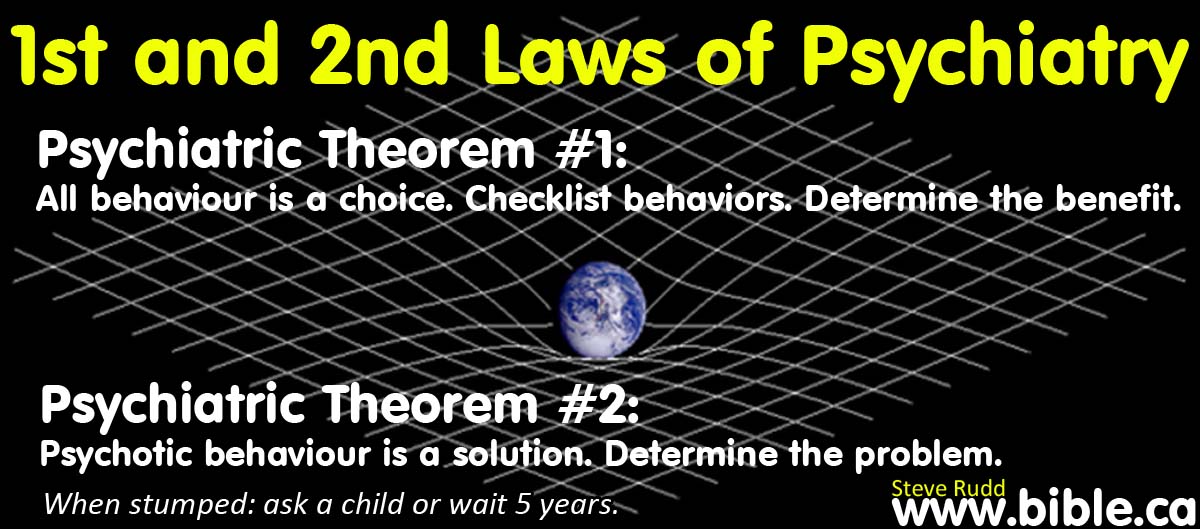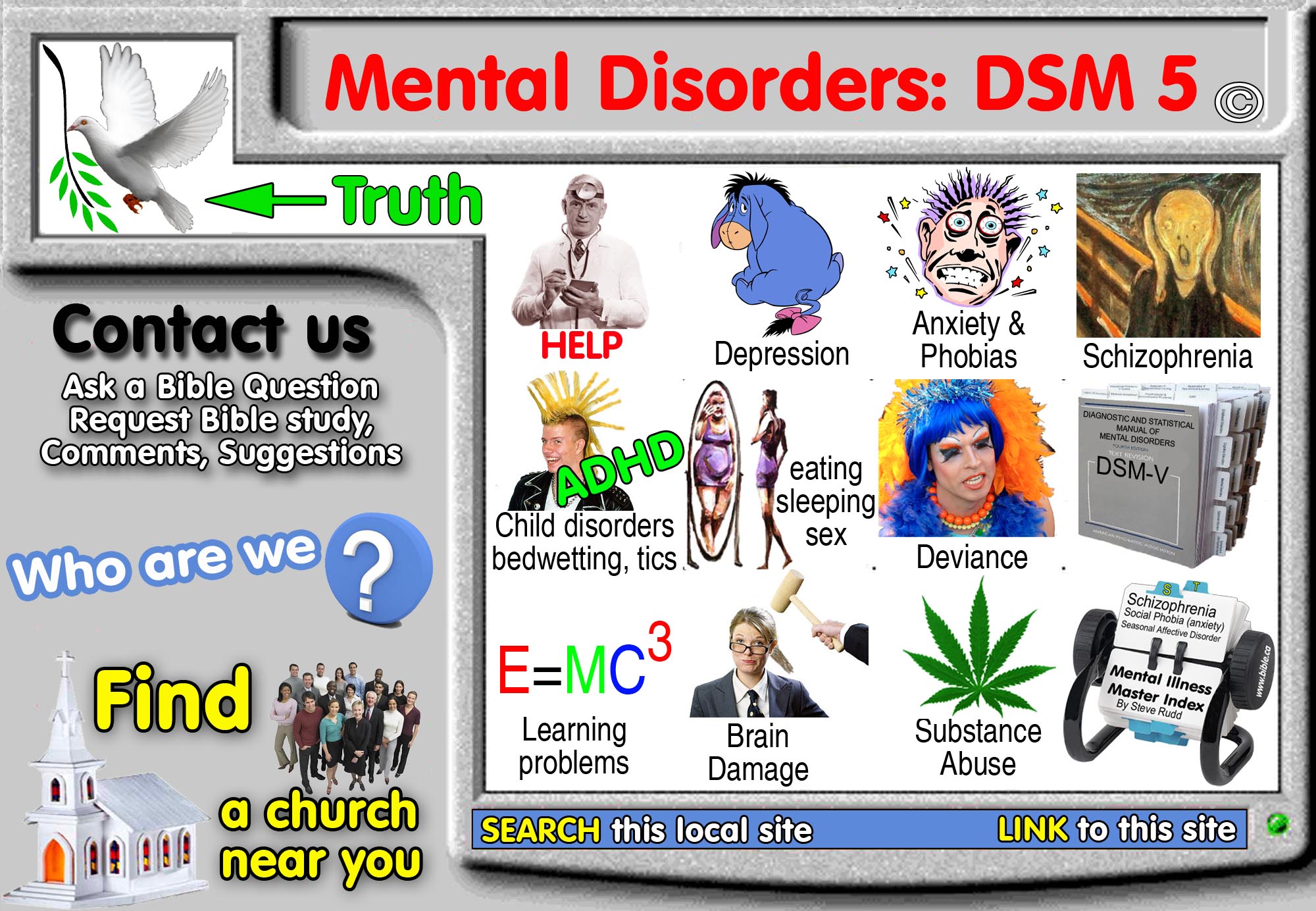The case of "Wolfhound" (Psychopathic murderer)
Casebook of Biblical Psychiatry © Version 7 (CBP-7)
|
Based upon |
Casebook of Biblical Psychiatry© brings the principles of Biblical Psychiatry to life based upon real-world cases and familiarizes Christians with different types of situations. This practical companion volume to Biblical Psychiatry© includes not only diagnosis, but also in-depth discussions by experienced Christians for Biblical approaches to treatment. This meticulously detailed volume of dynamic real-life case studies is simply a "must read" for all clinical Psychiatrists, mental health care professionals and Christians interested in expert opinion on today's treatment approaches. Psychiatric students, educators, and practitioners—as well as social workers, nurses, medical physicians, and interested laypersons—will find this unique volume of inestimable value in their day-to-day work.
|
|
|
|
|
The
case of |
|
|
|
|||||
|
|
The case of "Wolfhound" |
||||
|
|
Biopsychiatric labels DSM-5 |
||||
|
|
Checklist Behaviours DSM-7 |
Jealousy, Murder, covetousness, selfishness, Deception, lying |
|||
|
|
Insights MMPI-7 |
|
|||
|
|
Quick Pick EDS-7.1 |
Complaints: I feel Unhappy |
|||
|
|
Self-disablement EDS-7.2 |
None |
|||
|
|
Chemical imbalance EDS-7.3 |
No. Never ingested opium. Although before the era of prescribed psychiatric drugs (1950's) which create chemical imbalances in the brain, at this point in history Opium was the only drug widely used to create chemical imbalances in the brains of the insane. |
|||
|
|
Benefits EDS-7.4 |
Escape duty or life situation: EDS-7.4.4 Self-punishment for personal failures or to ease a guilty conscience: EDS-7.4.12 Epicurean hedonism: EDS-7.4.14 |
|||
|
|
Monetary EDS-7.5 |
- |
|||
|
|
Annoyance Scale EDS-7.6 |
Low |
|||
|
|
Diagnostic Laws EDS-7.7 |
Law of Narcissistic Behaviour Choice (NBC) EDS-7.7.1.NBC Law of Derivative Personal Benefit (DPB) EDS-7.7.2.DPB Law of Domino Problem Transference (DPT) EDS-7.7.4.DPT Law of Annoyance Toleration Threshold (ATT) EDS-7.7.5.ATT |
|||
|
|
Determine the Problem |
She murdered her best friend to marry her best friend's husband. |
|||
|
|
Ask a Child |
||||
|
|
5 years later EDS-7.7.LPT |
She was married to the man best friend's husband. |
|||
|
|
|
||||
The case of "Wolfhound"
Carl Jung, psychiatrist and founder of analytical psychology, a woman murders her rival and marries her prize, but she ends up lonely and confesses after 20 years, to a doctor rather than a man of God.
"A lady came to my office. She refused to give her name, said it did not matter, since she wished to have only the one consultation. It was apparent that she belonged to the upper levels of society. She had been a doctor, she said. What she had to communicate to me was a confession; some twenty years ago she had committed a murder out of jealousy. She had poisoned her best friend because she wanted to marry the friend's husband. She had thought that if the murder was not discovered, it would not disturb her. She wanted to marry the husband, and the simplest way was to eliminate her friend. Moral considerations were of no importance to her, she thought. The consequences? She had in fact married the man, but he died soon afterward, relatively young. During the following years a number of strange things happened. The daughter of this marriage endeavored to get away from her as soon as she was grown up. She married young and vanished from view, drew farther and farther away, and ultimately the mother lost all contact with her. This lady was a passionate horsewoman and owned several riding horses of which she was extremely fond. One day she discovered that the horses were beginning to grow nervous under her. Even her favorite shied and threw her. Finally she had to give up riding. Thereafter she clung to her dogs. She owned an unusually beautiful wolfhound to which she was greatly attached. As chance would have it, this very dog was stricken with paralysis. With that, her cup was full; she felt that she was morally done for. She had to confess, and for this purpose she came to me. She was a murderess, but on top of that she had also murdered herself. For one who commits such a crime destroys his own soul. The murderer has already passed sentence on himself. If someone has committed a crime and is caught, he suffers judicial punishment. If he has done it secretly, without moral consciousness of it, and remains undiscovered, the punishment can nevertheless be visited upon him, as our case shows. It comes out in the end. Sometimes it seems as if even animals and plants "know" it. As a result of the murder, the woman was plunged into unbearable loneliness. She had even become alienated from animals. And in order to shake off this loneliness, she had made me share her knowledge. She had to have someone who was not a murderer to share the secret. She wanted to find a person who could accept her confession without prejudice, for by so doing she would achieve once more something resembling a relationship to humanity. And the person would have to be a doctor rather than a professional confessor [church minister]. She would have suspected a priest of listening to her because of his office, and of not accepting the facts for their own sake but for the purpose of moral judgment. She had seen people and animals turn away from her, and had been so struck by this silent verdict that she could not have endured any further condemnation. I never found out who she was, nor do I have any proof that her story was true. Sometimes I have asked myself what might have become of her. For that was by no means the end of her journey. Perhaps she was driven ultimately to suicide. I cannot imagine how she could have gone on living in that utter loneliness." (Memories Dreams Reflections, Carl Gastav Jung, 1961 AD, p 122)
Discussion:
The pure psychopathic evil of this woman is manifested in her mistrust of confessing to a church minister. Test to see if you are a psychopath: Question: A woman, while at the funeral of her own mother, met a guy whom she did not know. She thought this guy was amazing. She believed him to be her dream guy so much, that she fell in love with him right there, but never asked for his number and could not find him. A few days later she killed her sister. Question: What is her motive for killing her sister?
While she chose a doctor she he would not moralize, the doctor offered no forgiveness of God either. Going to a doctor shows she was only willing to go halfway in her confession because she was not willing to endure any moral criticism or judgement from God. Yet only through judgment, conviction, personal confession and forgiveness from God, could she ever hope to be freed from the guilt. Probably half of the bad things that happened in her life were direct actions of retaliation from God and the other half were imagined out of her guilty expectation of judgement.
Answer to Question above: She was hoping the guy would appear at the funeral again. If you answered this correctly, you think like a psychopath. This was a test by a famous American Psychologist used to test if one has the same mentality as a killer. Many arrested serial killers took part in the test and answered the question correctly. This is exactly what this woman did.
This story, above all, shows how psychiatrists are the "atheist's priest".
This Bible verse directly describes the woman: “You lust and do not have; so you commit murder.” (James 4:2)
Benefits from behaviour: This illustrates the Law of Narcissistic Behaviour Choice (NBC) EDS-7.7.1.NBC
- Escape duty or life situation: EDS-7.4.4. She wanted to marry her best friend's husband.
- Self-punishment for personal failures or to ease a guilty conscience: EDS-7.4.12. It is important to notice that she was not confessing her murder in order to make it right, she was seeking relief from her own misery. Once again, she is acting out of pure psychopathic narcissism.
3. Epicurean hedonism: EDS-7.4.14. She wanted to marry that man and would do anything, including murdering her best friend to satisfy her lusts.
Diagnostic laws that are seen illustrated in the case of "Wolfhound":
- She had calculated that the cost of murdering her best friend was worth the benefit of marrying her best friend's husband. She lost a best friend. Her best friend's family had to suffer the grief of her death. Then there is the personal guilt, even though in this case, she never really shows any guilt. Her final costs were that she was unhappy, not that she was a guilty sinner. Later in life, she likely realized that the actual cost was much higher than she expected. This illustrates the Law of Derivative Personal Benefit (DPB) EDS-7.7.2.DPB
- In order to solve the problem and satisfy her lusts she was prepared to create huge problems for both the woman she murdered and her grieving family. This illustrates the Law of Domino Problem Transference (DPT) EDS-7.7.4.DPT
3. Usually, it is the relatives of annoying psychotic people who seek relief and by taking their annoying relative to a psychiatrist. Psychotic people cause others trouble, who in turn seek relief from a psychiatrist. This case is a bit unusual, in that the psychopath caused herself so much trouble that SHE sought out a psychiatrist to bring relief. This illustrates the Law of Annoyance Toleration Threshold (ATT) EDS-7.7.5.ATT
By Steve Rudd: Contact the author for comments, input or corrections.
Send us your story about your experience with modern Psychiatry


